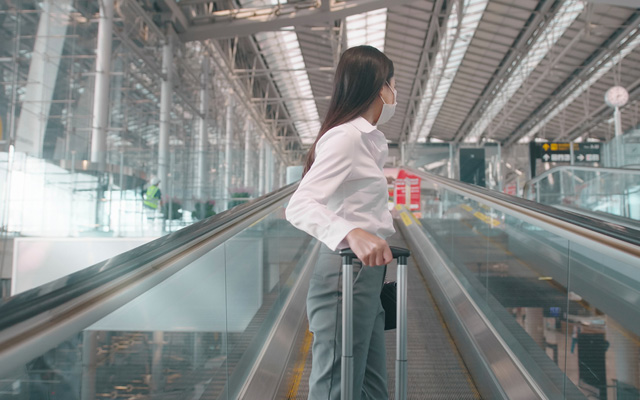Speakers at Flight Centre Travel Group’s showcase corporate travel management event, Illuminate 2021, indicate that efforts to reboot the industry are now in place and will light the way to recovery.
The one-day virtual meeting held last week on October 21 was themed Time to Fly.

Alan Joyce, CEO, Qantas, said the airline was bringing forward its London-Los Angeles service to November 1, with Canada, Singapore and Japan (Tokyo) and double Los Angeles and London flights on the cards before Christmas.
Joyce added: “In the early New Year we will expand the rest of the network rapidly and all our international aircraft will be back in the air by July next year, except for the A380s, which will take longer.
He pointed out Qantas had signed an agreement with Emirates to help the airline launch internationally, adding that he was “very optimistic about business travel recovering”.
In the case of Accor, Renae Trimble, its chief operating officer, announced the global chain had in place “a global partnership to provide tele-health and medical support across all hotels worldwide” to boost travel confidence.
Trimble said guests would be able to access first-level response medical support in a number of different languages at any Accor property.
She observed it was really important that guests felt that confidence, citing access to medical support was one of the main barriers to travel.
To beef up duty of care, ANZ environmental sustainability change lead, Jeff Elliott named “a zero-tolerance policy on booking” as a major change.
Previously with travel across 33 markets, Elliot acknowledged there were occasional slips.
Elliot commented: “Covid-19 has really brought home the need to have 100 per cent visibility on the location of every traveller, so we can offer real-time support where required. We have increased focus on awareness of individual traveller risk.”
He also pointed to the importance of having a “tailored approach for each individual traveller”, as staff have differing requirements and are of higher risk depending on their medical conditions and age.
“Finally, there is going to be a big consolidation of the duty of care support, responsibilities and decision-making process. By bringing all of those together and having a structured approach will allow us to respond quickly,” Elliot concluded.





















